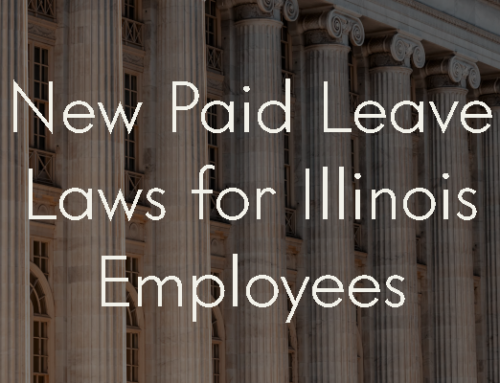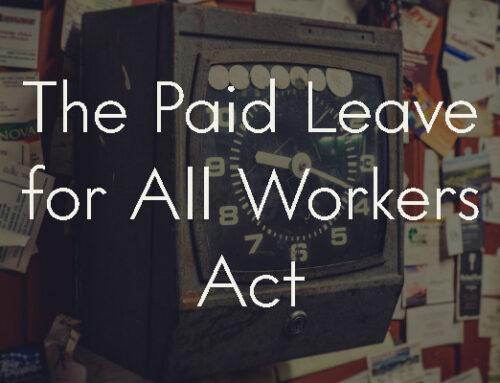In the last bit of employment news last week, the BACP reminded employers of the Anti-Retaliation Ordinance. Enacted in response to the coronavirus pandemic, the Ordinance protects workers from retaliation for obeying certain health orders related to COVID-19.
What Health Orders are Covered Under Chicago’s Anti-Retaliation Ordinance?
The Anti-Retaliation Ordinance applies to several kinds of health orders:
- Stay at home to minimize the transmission of COVID-19.
- For example: A stay-at-home order closes your workplace and requires you to stay home.
- Remain at home while experiencing COVID-19 symptoms or sick with COVID-19.
- For example: A doctor tells you to stay home because you tested positive for COVID-19 or exhibited symptoms (fever, cough, etc.).
- Obey a quarantine order issued by a treating healthcare provider.
- For example: A doctor tells you to stay home because you might have been exposed to COVID-19.
- Obey an isolation order issued by a treating healthcare provider.
- For example: A doctor tells you to stay home because you are or might be sick with COVID-19.
- Obey an order issued by the Commissioner of Health regarding the duties of hospitals and other congregate facilities.
- For example: You work at a congregate facility (a hospital, nursing home, etc.) that neglects to implement mandated public health measures.
Additionally, employees cannot be retaliated against for caring for someone obeying one of the above orders (except #5).
What Counts as Retaliation?
The Ordinance defines ‘retaliation’ broadly. The BACP provides the following as examples:
- Firing or dismissal
- Denial of a promotion
- Negative evaluations
- Schedule changes
- More undesirable work assignments
- Other harassment resulting from the worker obeying a COVID-19 related order
If an employee claims they’re obeying an order issued by a healthcare provider, the Ordinance lets employers ask for proof after the third consecutive day of absence.
What Are the Consequences for Retaliation?
First, an employee submits a complaint to the Office of Labor Standards. The Office then starts an investigation, possibly following with a civil action against the employer. In such an action, the employee stands to recover the following:
- The same position held before the retaliatory action, or an equivalent one
- Three times the wages lost due to the retaliatory action
- Any other damages directly caused by the retaliatory action
- Other costs and attorneys’ fees, as the court allows
It looks like the employee could recover all of these if multiple retaliatory actions took place. If an employee first suffered a pay cut and subsequent dismissal, they could recover their old job as well as 3x their lost wages.
Still have questions? Email us! You can also look for answers in resources from the BACP and Department of Labor:





